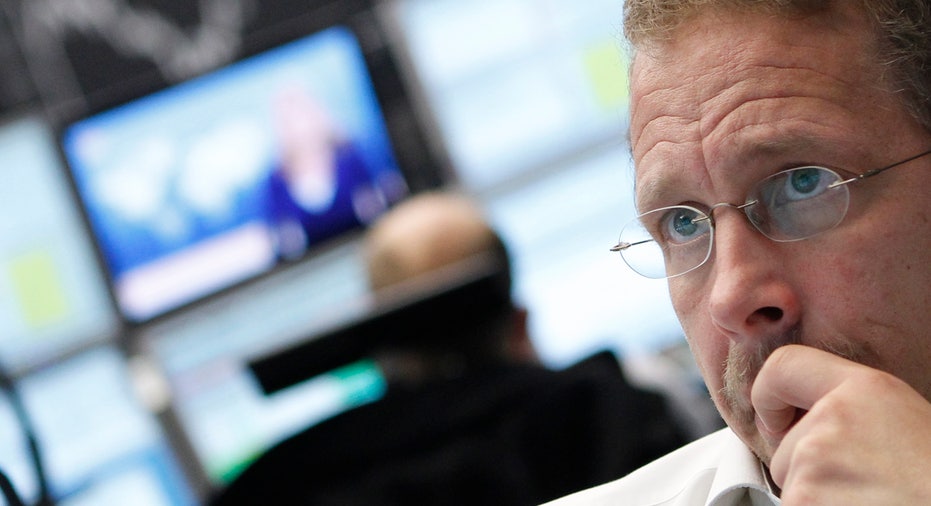Fiscal Worries Dent Global Markets

Concern over budget and debt negotiations in Washington weakened the dollar on Friday and kept a lid on gains in world shares stemming from a positive batch of U.S. jobs numbers.
Investors are worried that political manoeuvring over the passage of bills needed to keep the U.S. government running beyond Sept. 30 and avoid a debt default could threaten a fragile economic recovery.
"Everyone instinctively wants to believe a last minute compromise is likely, but the political brinkmanship does raise the prospect that they will crash the car," said Ned Rumpeltin, head of G10 FX Strategy at Standard Chartered Bank.
Moves by Republican lawmakers on Thursday did not bode well for a prompt resolution of the fiscal battles that could lead to a Federal shutdown on Oct. 1 and a default in mid-October, setting the stage for a tense weekend of talks.
The political impasse has sent the cost of insuring against a U.S. sovereign default in the credit default swap market to its highest level in four months.
The dollar was down by around 0.1 percent against a basket of major currencies after rising 0.3 percent in the previous session due to a report showing fewer Americans filed new claims for jobless benefits last week.
The MSCI world equity index rose 0.1 percent after Wall Street snapped a five-day losing streak on the solid jobs data on Thursday.
Market players are still trying to determine when the U.S. Federal Reserve will begin to taper back its $85 billion monthly economic stimulus package after its surprise decision not to do so last week and mixed messages from various top Fed officials since.
On the one hand, a reduction in monetary stimulus would reduce the flood of money available to invest in shares, but it would also point to faith that the U.S. economy is back on its feet.
Three top Fed officials said on Thursday the central bank had confused markets over its policy outlook.
Europe's broad FTSE Eurofirst index ticked up 0.2 percent at the open but is unchanged over the week, hovering just below a five year high, as investors wait to see the outcome in Washington.
MSCI's broadest index of Asia-Pacific shares outside Japan gained 0.2 percent, with Australian shares scaling a five-year high in sympathy with Wall Street shares.
However, Japan's Nikkei bucked the trend, falling 0.4 percent as Tokyo markets focused more on the government's growth strategy and tax plans due out next week, which also lifted the yen against the dollar.
ITALIAN TEST
Debt markets' attention was focused on Italy's sale of 6 billion euros in bonds later on Friday. Market costs of borrowing for the euro zone's third largest economy have risen steadily in the past two weeks on the back of a flare up in tension within the ruling governing coalition.
Prime Minister Enrico Letta said late on Thursday he would meet President Giorgio Napolitano on Friday to discuss the crisis after former prime minister Silvio Berlusconi's centre-right party renewed threats to pull out of the coalition.
"(Yesterday's) developments increased the risk that the coalition government could break up, increasing the chances that another election might be possible," RIA Capital Markets strategist Nick Stamenkovic said.
The premium demanded by investors to buy Italy's 10-year bonds over the German equivalent was 3 basis points higher on Friday at 259 basis points, its highest in over a week.
Italian 10-year yields were 3 basis points up at 4.37 percent with Spanish equivalents up by 2 basis points at 4.36.
The euro had edged up 0.1 percent to $1.3496 against a weaker dollar, though was off a seven-month high of $1.3569 hit last week.
Britain's pound edged higher after Bank of England Governor Mark Carney was quoted as saying he saw no need for more bond-buying by the bank given signs of economic recovery.
Sterling was up 0.4 percent at $1.6096 GBP=D4, after earlier rising as high as $1.6133.
In the oil market Brent crude dropped below $109 a barrel on course for its third straight weekly loss, as diplomatic efforts over Syria and Iran help ease worries about risks to supply from the Middle East.



















